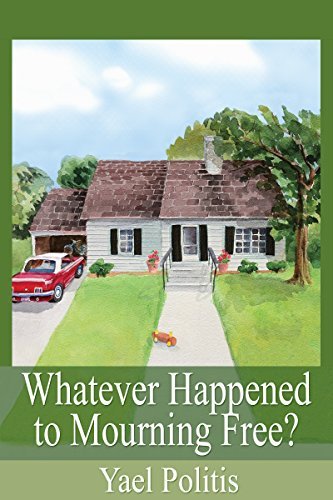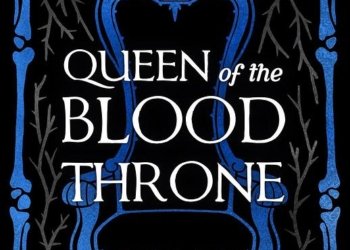No products in the cart.
Whatever Happened to Mourning Free? by Yael Politis
Charlene Conner had just received her degree from the University of Michigan when the novel Whatever Happened to Mourning Free? by Yael Politis is set. Her mother recently passed away, and her father fled to Grand Rapids from Dearborn. Charlene is in charge of getting the family home ready for the market.
Long ago, Olivia, Charlene’s great-great-great aunt, struck a chord with her. Will Charlene learn the truth about Mourning Free when a lawyer with information about Olivia knocks on her door? The third book in the Olivia series is titled Whatever Happened to Mourning Free?
In my review of Whatever Happened to Mourning Free?, the first book in the series, I praised it for being vivid. Whatever Happened to Mourning Free? effortlessly stands on its own while calling back to characters from the previous novel in a way that is creative and enhances the 1960s backdrop, despite strangely missing the second book in the series. Charlene is a little lost in her sadness and remorse when we first meet her. Her loss of her mother and her father’s seeming abandonment have devastated her heart. She experiences remorse as a result of how relieved she is that her mother has passed away. The terrible hospital bed is gone, but her medications are still in the refrigerator.
Her father’s apparent attempt to steer her toward Reeves Valenti, the guy she was supposed to marry but opted to concentrate on her schooling instead, complicates their relationship. Operating a boarding establishment, Oliva assisted slaves in crossing the Detroit River to freedom in Canada. When a lawyer delivers a second diary written by the beloved Oliva, whom Charlene has long admired, to her door, she wonders what her ancestor would have thought of a society where youth seem to be preoccupied with finding the next high.
The character Charlene fits the 1960s like a glove. She isn’t into drugs or free love, but she is in a state of flux that would not have been possible in any other time period for this novel to take place. The reader may clearly detect the influence of the 1960s in everything from aspirations to the atmosphere and equipment.
If the past is not respected, it becomes history, and Charlene values the contributions made by those who came before her. Although we were exposed to the stories of the late 1960s race riots as children, we never experienced them firsthand. Politis serves as a reminder of how nasty and isolated those times were, yet how entwined with optimism Charlie represents.
Readers who liked the first novel will love the similarity in spirit between Olivia and her great-niece. There are a few small mistakes that bothered this reader a little. Normal typos don’t bother me, but folks who add a “s” to words have long annoyed me. Having grown up in the general area where this work is set, I must admit that the addition of the “s” is a distinctive metro-Detroit feature.
Whatever Happened to Mourning Freeplot ?’s moves along smoothly, and Politis does a good job of blending the different eras she travels through. This third novel shows Politis’ comfort level. She is telling the reader a very clear story that she has in her head. The tale of a woman who was impacted by history will appeal to historical fiction readers. The focus of the narrative is Charlene and her interest in her ancestry and connection to the past.
The narrative provides the distinct impression of being a finished work, while its author’s influence is still very much there, giving promise for additional books. The historical novel Whatever Happened to Mourning Free? is superb and will stick with the reader. Yael Politis was born and raised in Dearborn, Michigan, and has since moved to Israel. The Lonely Tree and The Way the World Is, the second book in the Olivia trilogy, are also by Politis (The Olivia Series).
About The Book
It’s 1967 and Charlene has just graduated from the University of Michigan, without her “Mrs.” degree. Her mother recently passed away, and soon afterwards her father fled the silence, to a new home and job on the other side of the state. So Charlene is going “home” to what is now an empty house.
Two things make this long, hot summer bearable: Reeves Valenti – the high school sweetheart she left behind – and the lawyer who unexpectedly knocks on her door, bringing information about the woman she idolizes – her great-great-great Aunt Olivia Killion. Charlene is eager to get Olivia’s journals from him and finally learn what happened to Olivia and her friend and partner Mourning Free. She doesn’t know that the answer to that question will deepen the connection she feels to Olivia and bring a new person — and a fundamental change — into her life.
The Olivia series consists of:
Book 1 – Olivia, Mourning (Historical – 1840s)
Book 2 – The Way the World Is (Historical – 1840s)
Book 3 – Whatever Happened to Mourning Free? (Vintage Contemporary -1967 and Historical – 1840s)
Book 4 – The Summer of 1848 (Historical – 1840s)
Book 5 – Money and Good Things (Historical – 1850s)
Other books by this author:
The Lonely Tree (Historical – 1930s-1960s, Israel)
The Summer of 1974 (Vintage Contemporary, Israel)
The Review
Whatever Happened to Mourning Free?
9 Score
This is one of the best authors ever in nearly 70 years of reading! The characters are complex neither perfection nor bad. The first two historical novels of the series leave us wondering what happened to the star crossed lovers who settled Michigan in the early 1800s leaves us wondering what happened to Mourning Free? Childhood friends who loved each other almost from the beginning encountered the casual racism built into the fabric our society and Olivia found herself looking for her friend, Mourning Free without finding him.
PROS
- Wonderful Writing Style.
- Beautiful Saga.
- Absorbing.
- A Wonderful, Historical Novel.
CONS
- Awful.
- Silly And Boring.
- Very Disappointing!
- Strange Characters.










